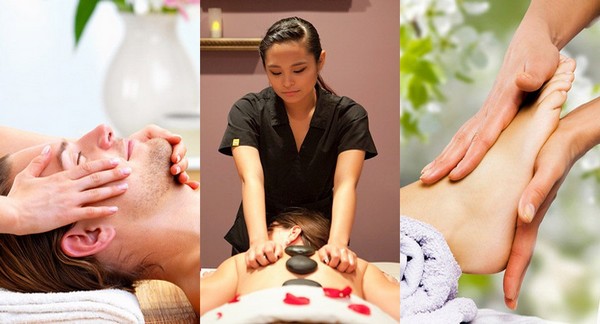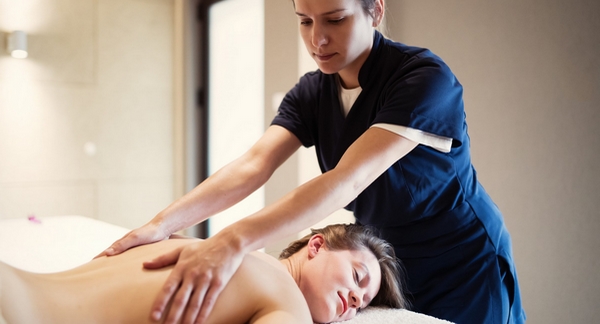How To Set Up, Run & Promote Massage Business Successfully

Becoming a massage therapist is not solely about financial gain; it's a dedication to a profession that champions holistic wellness and promotes natural health. Within massage therapy, one can find the unique privilege of providing comfort and solace to individuals, making it a career path that is both financially lucrative and deeply gratifying.
In the following article, we will walk you through the steps of launching your own massage therapy business in the UK, with an emphasis on effectively marketing your services through platforms such as Massages Me.
Qualifications and Skills Required for a Massage Therapist
Becoming a successful massage therapist in the UK is not just about providing soothing massages; it also involves gaining the qualifications and skills to offer safe and professional services that deliver real results. While no official qualifications are required to become a freelance massage therapist, investing in training and building experience is a crucial step in your journey.
Academic Qualifications💎 To stand out in the field and demonstrate your expertise, you can pursue academic qualifications in massage therapy. Some recognised options include:
💎 Level 3 Diplomas: You can obtain Level 3 Diplomas in various massage-related disciplines such as Massage, Sports Massage Therapy, or Complementary Therapies. These qualifications are typically available through awarding bodies like NVQ, ITEC, BTEC, VCT, or CIBTAC.
💎 Degree-Level Courses: After completing your Level 3 Diplomas, you can pursue higher education in massage therapy and related fields up to degree-level qualifications.
💎 Advanced Apprenticeship: Another pathway is to embark on an advanced apprenticeship program, which allows you to acquire essential knowledge and skills through practical experience and formal education.
Courses and TrainingNumerous providers offer courses and training programs in massage therapy. It's important to choose courses that align with your career goals and meet the standards set by professional bodies in the industry.
Professional OrganizationsSeveral professional organisations and councils set standards and guide aspiring massage therapists. These include:
⭐ General Council for Soft Tissue Therapies (GCMT): GCMT is a governing body establishes professional and training standards.
⭐ Complementary and Natural Healthcare Council (CNHFC): CNHFC is another regulatory body that plays a role in maintaining quality standards in complementary healthcare.
⭐ Federation of Holistic Therapists (FHT): FHT is an organisation that offers support and resources to therapists in the holistic field.
⭐ International Institute for Complementary Therapists: This organisation provides resources and recognition for complementary therapists.
⭐ National Association of Massage and Manipulative Therapists: This association specialises in massage and manipulative therapy.
⭐ The Society of Sports Therapists: If you choose to advance your career with a degree-level qualification in sports therapy, this organisation can provide valuable support.
Continuing Professional Development (CPD)Many professional organisations, such as CNHFC and FHT, require therapists to engage in Continuing Professional Development (CPD) programs. These programs involve participating in a specified number of activities each year to enhance your skills and develop your practice further.
Duration of TrainingWhile there is no legal requirement regarding the length of your training, the GCMT recommends completing a course that lasts at least six months full-time or 12 months part-time to ensure that you receive comprehensive and adequate training.
Licensing RequirementsYou should be aware of the licensing requirements set by your local council, as they may vary depending on your location. In some cases, you may need to register as a therapist, and your premises will also need to meet certain standards.
For example, the London Local Authorities Act mandates that therapists be appropriately qualified and experienced, with annual inspections of premises to ensure compliance.
While no official qualifications are required to become a freelance massage therapist, investing in the right training and aligning yourself with recognised professional organisations is highly beneficial. These steps not only enhance your skills and expertise but also provide you with credibility and trustworthiness in the competitive massage therapy industry.
Whether just starting your career or seeking to advance, continuous learning and professional development are the keys to success in this rewarding field.

Dedication to the Profession
Starting your massage therapy business is not merely a business; it's a commitment to a profession driven by dedication and passion. In the competitive landscape of the UK's wellness industry, these qualities are not just desirable & they are essential for achieving success and profoundly impacting your client's well-being.
To excel in the field and differentiate yourself, continually enhancing your skills and knowledge is crucial. Specialising in a niche within massage therapy broadens your scope and attracts a diverse clientele. The more techniques you learn and master, the more valuable you become to your clients. Here's why dedication is a non-negotiable asset in the world of massage therapy:
- Lifelong Learning: The field of massage therapy is dynamic, with new techniques, research, and practices emerging regularly. A dedicated therapist views education as a continuous journey, not a one-time event. You invest time and effort in staying up-to-date with the latest trends, ensuring your clients receive the most effective and cutting-edge treatments.
- Client-Cantered Approach: Dedication to your profession means putting your clients' well-being at the forefront of your practice. It involves active listening, empathy, and a genuine desire to understand and address your client's needs. Your commitment to their health and relaxation creates a lasting bond that transcends the boundaries of a single session.
- Natural Health Embrace: A dedicated massage therapist embraces the holistic approach to wellness. You're not just alleviating physical discomfort; you're promoting overall health. You understand that massage therapy is part of a broader spectrum of natural health practices and aim to integrate them seamlessly into your client's lives.

Passion for Holistic Wellness
Passion infuses your massage therapy practice with a profound sense of purpose and authenticity. It drives your commitment, propelling you to deliver exceptional service and build a fulfilling career. Here's why passion in the health and wellness industry is vital for success:
- Exceptional Client Experiences: A passionate therapist doesn't see clients as appointments but as opportunities to make a positive impact. You approach each session enthusiastically, creating a therapeutic environment that fosters relaxation and well-being.
- Self-Motivation: Passion ignites your inner drive. It motivates you to expand your knowledge, seek self-improvement, and push your boundaries. Your enthusiasm for the profession translates into constant growth, benefiting you and your clients.
- Attracting and Retaining Clients: Clients can sense when a therapist is genuinely passionate about their work. Your passion becomes a magnet, attracting clients who seek a service and an authentic and transformative experience. These clients are more likely to return and recommend your services to others.
Massage therapy is a physically demanding profession. It requires stamina, strength, and flexibility to deliver the best care to your clients. It's also important to be mentally prepared for the profession's challenges, including the emotional aspect of helping people with their pain and stress.
Before starting your massage therapy business, it's essential to be deeply dedicated to the profession. Massage therapy goes beyond using your hands to alleviate pain and discomfort. It involves continuous learning and the application of alternative and natural health approaches.

The Benefits of Starting Part-Time in Your Massage Therapy Business
Launching a career in massage therapy in the UK often begins with a part-time approach. This method holds numerous advantages, offering you a more measured path to success. Here's why beginning part-time is a sensible strategy for aspiring massage therapists and how it can pave the way for a successful transition to full-time practice:
Building a Client Base GraduallyStarting part-time allows you to build your client base steadily. Taking on clients at a manageable pace can provide the attention and quality service they deserve. This also allows you to focus on client retention and building a loyal following, which can be more challenging when stretched thin as a full-time therapist.
Gaining Valuable ExperienceEvery massage therapy session offers a unique learning opportunity. You can gain diverse experiences and become more skilled in various techniques by working part-time. The wisdom acquired through each session enriches your expertise, ultimately benefitting your clients.
Flexibility and Financial SecurityMaintaining other sources of income while working part-time as a massage therapist provides financial stability. This is particularly crucial during the initial stages of your practice when your client list is still growing. It ensures you can cover personal and business expenses without the stress of relying solely on massage therapy income.
Lower Business OverheadA part-time practice typically has lower overhead costs than a full-time business. You can invest in essential equipment, marketing, and insurance without overextending your budget. This gradual approach minimises financial risks.
Fine-Tuning Your ServicesThe part-time phase allows you to refine your service offerings, target market, and pricing strategy. You can experiment with different aspects of your business, such as marketing techniques and client communication, to determine what works best for your unique practice.
Establishing a Strong FoundationStarting small and part-time allows you to establish a strong foundation for your business. You can set up efficient administrative processes, build a professional network, and create a welcoming and comfortable workspace. These elements are essential for long-term success.
Personal Well-BeingBalancing part-time work with other commitments, whether they're personal or professional, is essential for your overall well-being. Overextending yourself can lead to burnout and harm your career and clients' experiences.
Transitioning to Full-Time PracticeTransitioning to full-time practice should be a well-considered decision. It's best done once you've established a solid client base, gained extensive experience, and have a clear business plan. At this point, you'll be better equipped to handle the demands of a full-time practice, and the transition can be smoother.
Starting part-time in your massage therapy business provides the time and space to grow, learn, and refine your skills. This gradual approach is practical and sets the stage for a successful and fulfilling career in the field.
So, take the time to build your foundation, gain experience, and establish your unique brand as a massage therapist before considering the leap to full-time practice. Your journey may start small, but it has the potential to lead to a flourishing and rewarding profession.

Exploring Earning Potential in Massage Therapy: Employee vs. Freelancer
Understanding the earning potential in massage therapy is crucial for those embarking on this fulfilling career path. Whether you work as an employee in a spa or take the freelance route, your income can vary significantly based on factors like location, experience, and specialisation. Here's a comprehensive overview of earning potential for massage therapists in London and the UK:
Employee Massage Therapist
When you start your career as a spa or wellness centre employee, your earnings will typically be an hourly rate or a set salary. On average, the salary for a massage therapist in London falls within the £22,000 to £28,000 range. However, having the proper licenses and certifications can enable you to command a higher income.
Freelance Massage Therapist
If you opt to become a freelance massage therapist, your earning potential can be more dynamic and dependent on various factors:
- Variation in Income: A Google search for the average salary of a massage therapist will reveal a wide range, from £20,000 to £78,000. However, a reasonable starting point for income is around £50,000 annually, assuming 20 hours of work per week for 42 weeks per year. Remember that this income figure should cover your costs, but it's a fulfilling level of earnings when you're passionate about your work and your boss and accountable only to your clients.
- The 50/20 Rule: This rule suggests aiming to earn £50,000 from 20 hours of work per week, which allows you ten weeks of holiday per year. Based on an average hourly rate of £60, this figure is just an estimate and can vary depending on your location and clientele.
- Hourly Rates: As a self-employed massage therapist, your hourly rates may fall in the range of £35 to £55, depending on factors like location and specialisation. However, your actual profit may differ based on overhead costs, such as rent, equipment, travel expenses, and taxes.
Freelance Mobile Massage in London and other areas of the southeast of the UK can often charge a premium per hour, with rates ranging from £80 to £100, especially if you offer specialised, highly qualified services. Some therapists may also include travel fees in their charges. Remember that while the potential earnings may be higher, the cost of living and business expenses in these areas are also generally higher.
Setting Your Rates
When determining your rates as a freelance massage therapist, it's essential to research what other therapists in your area charge. While engaging in a price war is tempting, setting your rates at the higher end of the market rate for your location is generally advisable. Focus on providing a premium service to attract and retain clients, which can ultimately lead to a more successful and financially rewarding practice.
The earning potential for massage therapists in London and the UK can vary significantly based on your career path and specialisation. Whether you choose to work as an employee or as a freelance therapist, your dedication, skills, and commitment to providing quality services are key factors that can impact your income.
By understanding the market and offering a premium service, you can carve out a prosperous and fulfilling career in massage therapy.

Going Independent & Achieving Your Full Potential
When you're ready to start your own massage therapy business, there are essential steps to consider:
- Financial Planning: Ensure you have enough funds to launch your business. You'll need to invest in the right equipment and supplies.
- Equipping Your Massage Room: The massage room is your workspace and must be well-equipped. You'll need massage tables, chairs, stools, sound machines for soothing music, shelves, blankets, hand sanitiser, table warmers, sheets, face cradle covers, and pillowcases.
- Massage Tables: Choose portable massage tables of good quality. Comfort for your clients should be a top priority. Look for tables with ample foam, making the table comfortable and durable.
- Sound Machines: These create a serene atmosphere, enhancing the client's overall experience.
- Massage Oils and Products: You'll need various types of massage oils and other products for your clients. Please consider offering additional products for sale to boost your revenue.
- Office Supplies: Your reception area will need office supplies, and you'll require cleaning supplies and other miscellaneous items.
- Legal Requirements: Acquire a business license and secure liability insurance for your practice.

Promoting Your Massage Business
Starting your massage therapy business is a significant step, and promoting your services is crucial to its success. Massages Me is an excellent platform for marketing your massage therapy business. It connects you with potential clients seeking wellness services in your area. Here are some additional tips for promoting your company:
- 👉 Build an Online Presence: Create a professional website and leverage social media to showcase your services, client testimonials, and contact information.
- 👉 Networking: Network with other wellness professionals, local businesses, and health-related organisations to gain referrals.
- 👉 Offer Specials: Attract new clients by offering introductory specials or loyalty programs.
- 👉 Focus on Customer Experience: Provide exceptional service and create a welcoming and relaxing atmosphere in your practice.
- 👉 Advertise: Consider local advertising options, both online and offline, to reach your target audience. You can use the Massages Me platform for independent massage therapists and Spas in the UK. Check out the blog post about How to Create Your Perfect Profile on Massages Me before you Post your Ad.

Final Words for Consideration
Embarking on a career in massage therapy in the UK holds immense potential for personal and professional fulfilment. Your journey in this field can be enriching as you harness your dedication, knowledge, and skills to provide holistic wellness to your clients. And to ensure your path to success is well-paved, Massages Me, a platform dedicated to connecting therapists with clients, can be your invaluable companion.
Dedication and passion are not optional attributes for those entering the massage therapy profession in the UK. They are the bedrock upon which a successful practice is built. By dedicating yourself to continuous learning, embracing a holistic approach, and infusing your practice with unwavering passion, you'll establish a thriving massage business and leave a lasting, positive impact on the well-being of your clients. Your journey in holistic wellness is a path worth pursuing with your heart and soul.
Starting your massage therapy business is a significant step, and to thrive in this industry, combining your expertise with effective marketing is crucial. Massages Me empowers you to build a thriving practice through its expansive reach and user-friendly platform. This platform connects you with clients actively seeking wellness services in your area, enabling you to expand your clientele and make a meaningful impact.
Consider the advantages of starting part-time, allowing you to gain experience, build a loyal client base, and refine your skills gradually. The benefits of this measured approach are numerous, providing a solid foundation for your massage therapy business.
The transition to full-time practice is a pivotal decision and should be undertaken once you've established yourself in the field. At this stage, you'll be well-prepared to meet the demands of a full-time practice, offering your clients the best possible experience.
In conclusion, your path to success as a massage therapist in the UK begins with dedication, education, and the right marketing tools. Massages Me offers the ideal platform to help you achieve your professional goals, connecting you with a community of clients eager to experience the benefits of your unique skills.
Your journey may start small, but with dedication and the right support, it can flourish into a fulfilling and prosperous career in holistic wellness.
Author – Martha Anderson - a creative writer, blogger, and expert in massage therapy, holistic wellness, nutrition, and personal training. She has a passion for helping individuals achieve optimal health and well-being. Martha holds advanced sports science and nutrition degrees and is committed to evidence-based practices. Her work emphasises understanding the intricate connections between physical health and mental wellness.
Search Massage Therapists Near You.
More From Our Blog
Latest Blogs
UK Massage Industry Booming in 2026: 11% of UK Adults Now Use Massage Therapy (UK Report 2025)
Post-Thai Massage Care: Tips for Maximizing the Benefits After Your Session
Thai Massage for Beginners: Answering Common Questions for Your First Session
Choosing the Right Thai Massage Therapist: What to Look for in a Qualified Professional
Post-Thai Massage Care: Tips for Maximising the Benefits After Your Session
Preparing for Your Thai Massage: Tips on What to Wear and How to Get Ready
How to Talk to Your Therapist for the Best Thai Massage Experience
What to Expect During a Traditional Thai Massage Session
A Guide to How Thai Massage Techniques Can Correct Postural Issues
How Thai Massage Can Help with Back Pain, Headaches, and Sciatica
View All Blogs
Advertise with Massages Me and Grow Your Business!
We are the leading massage platform for massage therapists in London and across the UK covering all of England, Scotland, Wales and Northern Ireland. Our aim is to promote individual therapists and venues in the UK, and help professional and casual body workers providing therapeutic and relaxing massages to expand their businesses and build desirable client base.
We provide a friendly and reliable online advertising platform for qualified Masseuses, students, and salons to connect with potential clients looking for relaxing and therapeutic massages - onsite and offsite mobile services across the UK.
Are you looking to meet more customers? Get your profile listed and start getting bookings today!



